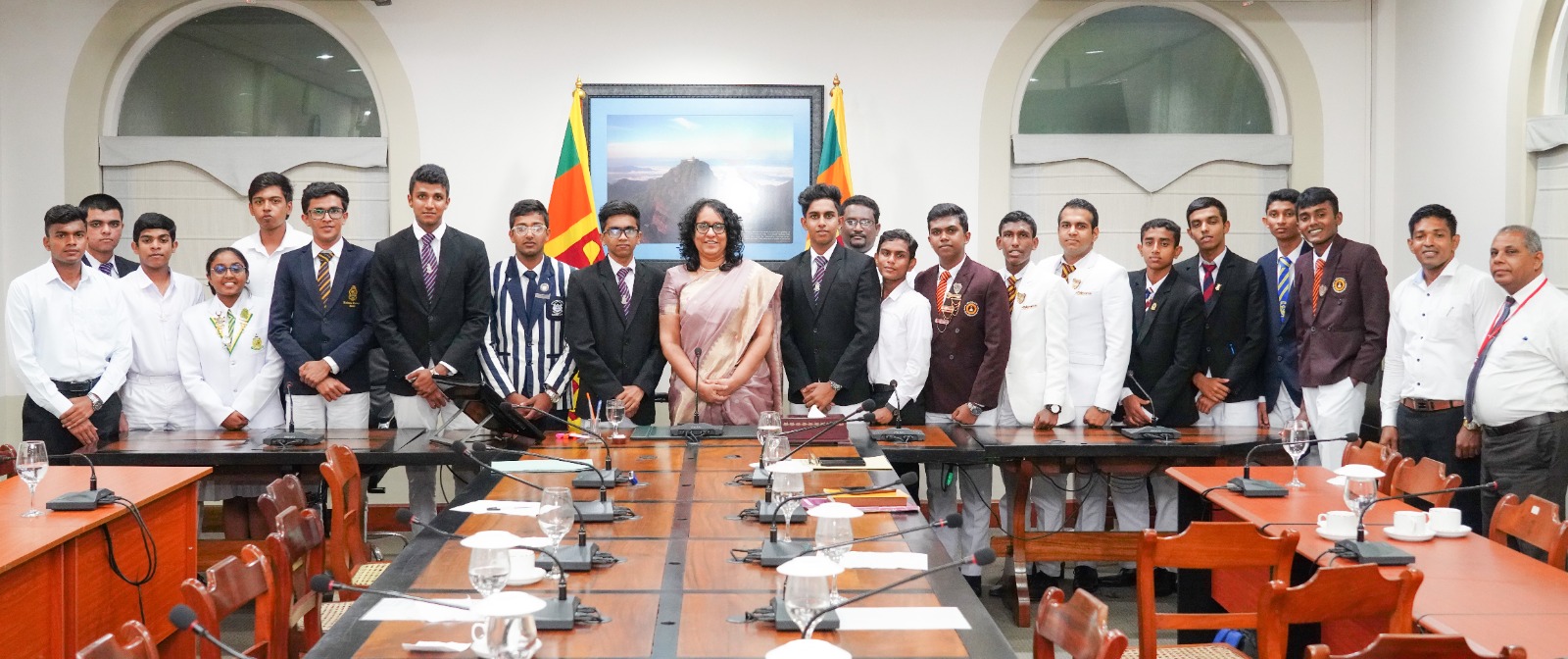News
FSP calls on people to oust govt.

By Saman Indrajith
The Frontline Socialist Party, on Tuesday, said that people had no option but to take to the streets to chase out the incumbent government. “The government has not learnt that people engage in protests because they no longer can put up with hardships. We have no other option but to beat off this government. Ranil Wickremesinghe says that he has no home to go. He should not go home, he should be sent to a prison for the crimes he had committed,” FSP Education Secretary, Pubudu Jayagoda, told a press conference held in Colombo.
Jayagoda said that farmers, fishers, workers, students, women and peasants are rising up against taxes and suppression by the government and his party would support their struggle to drive out this government. Those engaged in the fisheries industry find it hard to survive because of the fuel price hike. Crisis in the fishing industry started with the price increase on a litre of kerosene from Rs 87 to Rs 340. During the time of Mahinda Rajapaksa kerosene price was increased by Rs 140 and the fishers took to the street, protesting, and Anthony Fernando, of Chilaw, was shot during such a protest and the government had to bring down the price.
“A boat with a 50 litre capacity has to spend around Rs 29,000 before it is put to sea. The kerosene cost comes around Rs 17,000, lubricants Rs 5,000, baits and lures Rs 5,000 and food for at least three fishermen at Rs 2,000. A boat with 20 litre capacity has to spend around Rs 10,000 a day. This is without the cost for ice. The price of ice that had been at Rs 250 now went up to Rs 600. There are boats with 9.9 to 15 horsepower that need at least 15 litres of kerosene and such boats do not go to deep sea. The ones that go far have 25 horsepower and they need 30 liters while only the vessels of 30-40 horsepower can go into deep seas and they need 50 to 60 litres of fuel.
Fisheries industry is on its death throes. “The situation is worse when it comes to multiday fishing trawlers. There are around 6,000 such vessels. They use diesel. A vessel that spends around 45 days in the deep sea cannot be put to sea without spending around Rs 10 million. People can no longer afford to eat fish. The government has to take immediate action to allocate fuel to the fishing industry, immediately save the jobs of 100,000 engaged in the industry and to fight against malnutrition. In that context, the government has increased the fuel quota of MPs from Rs 100,000 to Rs 200,000 and added many ministers. Every minister gets six vehicles. Each gets 750 litres of petrol. If he has three petrol vehicles he gets 2,250 petrol liters a month. More than Rs one million government money is spent for that. Each minister gets 600 litres of diesel per one vehicle and with three vehicles he gets 1,800 litres per month and the government pays around Rs 700,000 per month. Instead of saving the dying fishing industry this is what the incumbent government does,” Jayagoda said.
Jude Namal from the Fisher Organisations Collective, M Wijendran of the Independent Fisher Activists Committee and W Maximan for the Fisher Workers Association also addressed the press conference.
Latest News
Members of the National Student Parliament meet PM

Members of the National Student Parliament met Prime Minister Dr. Harini Amarasuriya on Monday [02nd of February] at Temple Trees.
The representatives of the National Student Parliament, representing schools from across the island, visited the Temple Trees following their visit to the Presidential Secretariat and the Parliament.
Expressing her views on the occasion, Prime Minister Dr. Harini Amarasuriya stated,
“The new education reforms were recently initiated starting from Grade One. Discussions are currently underway to include students entering Grade Six this year into the new education reform process in the future. The education reforms will not be halted, and the government is committed to implementing them in a systematic manner without shortcomings”.
She further noted that the reforms are being carried out under five main pillars, with the government’s key objective being to reduce disparities and provide children with quality education, while also nurturing a socially responsible community enriched with human values such as compassion, love for the environment, and a strong sense of civic responsibility.
The occasion was attended by the Deputy Director of Education Kasun Gunarathne, along with officials from the Ministry of Education and representatives of the National Student Parliament.
[Prime Minister’s Media Division]
Latest News
Mrs. I.J. Aberathne appointed Director General of the Department of Trade and Investment Policy

The Cabinet of Ministers has approved the resolution presented by the President, in his capacity as the Minister of Finance, Planning, and Economic Development, to appoint Mrs. I.J. Aberathne to the post of Director General of the Department of Trade and Investment Policy with immediate effect.
News
Cabinet gives green light to provide equipment for the promotion of Aesthetic Education in schools

Although the teaching of art subjects such as music, dance, art, and drama under aesthetic education continues in the Sri Lankan school system, it has been observed that there is a severe shortage of equipment required for this purpose in many schools. Furthermore, a situation concerning the lack of modern equipment suitable for the needs of the children has also arisen, and it has been reported that most equipment available at present is outdated and dilapidated. It has been observed that this condition has an adverse effect on the quality of the aesthetic education and overall personality development of the children.
Therefore, the Cabinet of Ministers has approved the resolution presented by the Prime Minister in her capacity as the Minister of Education, Higher Education, and Vocational Education to implement a project for supplying aesthetic equipment for the promotion of aesthetic education in schools under an estimated cost of Rs. 1,215 million during the period of 2026 to 2028.
-

 Opinion5 days ago
Opinion5 days agoSri Lanka, the Stars,and statesmen
-

 Business6 days ago
Business6 days agoClimate risks, poverty, and recovery financing in focus at CEPA policy panel
-

 Business4 days ago
Business4 days agoHayleys Mobility ushering in a new era of premium sustainable mobility
-

 Business4 days ago
Business4 days agoAdvice Lab unveils new 13,000+ sqft office, marking major expansion in financial services BPO to Australia
-

 Business4 days ago
Business4 days agoArpico NextGen Mattress gains recognition for innovation
-

 Business17 hours ago
Business17 hours agoSLIM-Kantar People’s Awards 2026 to recognise Sri Lanka’s most trusted brands and personalities
-

 Business3 days ago
Business3 days agoAltair issues over 100+ title deeds post ownership change
-

 Business3 days ago
Business3 days agoSri Lanka opens first country pavilion at London exhibition













